
Alecensa cut the risk of death by 22% versus Xalkori, with median overall survival reaching 81.1 months versus 54.2 months in advanced ALK-positive lung cancer.

Alecensa cut the risk of death by 22% versus Xalkori, with median overall survival reaching 81.1 months versus 54.2 months in advanced ALK-positive lung cancer.
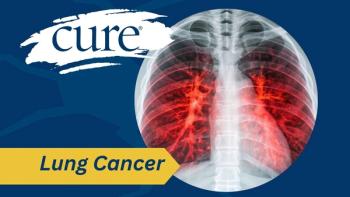
The Beamion LUNG-1 study showed that first-line Hernexeos had benefit for patients with HER2-mutated NSCLC.

In hormone-sensitive prostate cancer, an alternative dosing of docetaxel plus Nubeqa and ADT was associated with improvements in side effect rates.

The addition of postsurgical Verzenio to endocrine therapy provided a benefit in HR–positive, HER2-negative breast cancer.

In PD-1/PD-L1-pretreated recurrent/metastatic head and neck squamous cell carcinoma buparlisib and paclitaxel was not associated with a survival improvement.

VCN-01 plus standard chemotherapy and Abraxane proved safe and effective for patients with metastatic pancreatic cancer.

Camrelizumab plus famitinib extended progression-free survival to 11.1 months versus 7.5 months with chemotherapy in recurrent or metastatic cervical cancer.
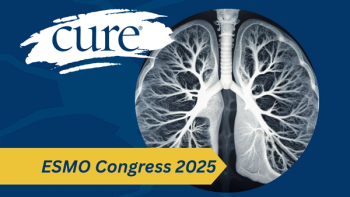
Alecensa achieved a 98.4% 4-year overall survival rate versus 92.4% with chemotherapy in resected ALK-positive early-stage lung cancer.

Trodelvy plus Keytruda may maintain quality of life and slow physical decline in metastatic triple-negative breast cancer.

The cancer vaccine IO102-IO103 plus Keytruda was associated with a clinically relevant improvement in median progression-free survival.

Enhertu plus Perjeta improved progression-free survival versus THP in patients with HER2-positive advanced or metastatic breast cancer across subgroups.

Ivonescimab plus chemotherapy significantly improved progression-free survival versus Tevimbra advanced squamous non–small cell lung cancer.
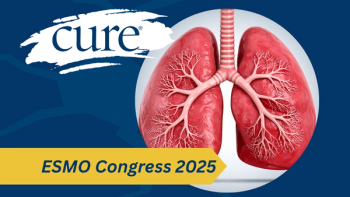
Sacituzumab tirumotecan cut risk of progression or death by 51% versus chemotherapy in EGFR-mutated NSCLC after tyrosine kinase inhibitor resistance.

Tiragolumab added to Tecentriq plus Avastin did not improve progression-free survival in untreated advanced hepatocellular carcinoma, phase 3 data show.

Platinum chemo with Imfinzi, Avastin, and Lynparza improved progression-free survival versus chemo and Avastin but did not extend overall survival.

Loqtorzi improved progression-free and overall survival versus chemotherapy in HER2-expressing advanced urothelial cancer.
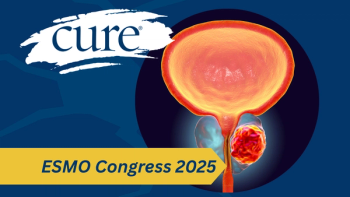
Adding Xtandi to androgen deprivation therapy and radiation did not significantly improve metastasis-free survival in high-risk localized prostate cancer.
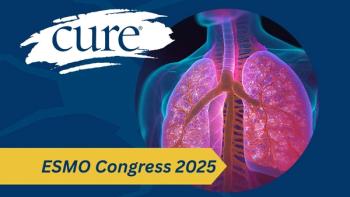
In phase 3 DREAM3R, first-line Imfinzi plus chemotherapy showed survival and response benefits in advanced mesothelioma, but results were inconclusive.

Adding Tecentriq to chemo resulted in survival outcomes comparable to placebo plus chemo in patients with advanced or recurrent endometrial cancer.

Trodelvy reduced risk of disease progression or death versus chemotherapy in patients with previously untreated metastatic triple-negative breast cancer.

Adding Truqap to Zytiga, prednisone, and ADT extended radiographic progression-free survival by 7.5 months in PTEN-deficient prostate cancer.

Consolidation tiragolumab plus Tecentriq does not improve progression-free survival in advanced lung cancer compared to Imfinzi.

Sac-TMT improved progression-free survival in patients with HR+/HER2– breast cancer.

Neoadjuvant Enhertu then THP improved pathological complete response rate in patients with high-risk, HER2-positive early breast cancer.

Postsurgical Libtayo and placebo showed similar rates of second primary tumors in high-risk CSCC

Enhertu led to a 53% reduction in the risk of invasive disease or death versus Kadcyla in some patients with high-risk, HER2-positive breast cancer.

Adjuvant Opdivo significantly extended relapse-free survival in patients with resected stage advanced melanoma.

Clinical trial results showed favorable results with Keytruda-based therapy in this ovarian cancer population.
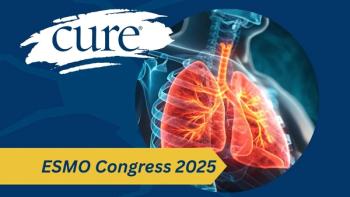
Clinical trial data support the use of Imdelltra as a standard of care for all patients with second-line small cell lung cancer.

Lymphoma survivors with chronic fatigue participating in a multidisciplinary intervention program experienced benefits to fatigue and quality of life.